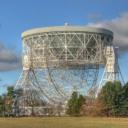Yahoo Answers is shutting down on May 4th, 2021 (Eastern Time) and beginning April 20th, 2021 (Eastern Time) the Yahoo Answers website will be in read-only mode. There will be no changes to other Yahoo properties or services, or your Yahoo account. You can find more information about the Yahoo Answers shutdown and how to download your data on this help page.
Trending News
Bitrate to bandwidth usage calculate?
My server machine has 1 GBPS Ethernet card upload/download capacity, and i have 80 users live to download 1800 bitrate, 720p resolution, 60frame per second, HD audio/video stream.
How much bandwidth of download i will require as capacity? is it: 1800 x 80 = 144000MB?
2 Answers
- Tracy LLv 73 years ago
In addition to what Richard has stated... does you 1Gbps card have a full gigabit of network to use? Many servers will not have that high rate of internet available!!! So if your stream is across the INTERNET it won't matter how fast your ethernet can send, it is limited by the actually internet connection speed not the network card!
- RichardLv 73 years ago
If you had not been so careless with units, then this does might have made some sort of sense.
I assume the bit rate is 1.8 Mbps or 1800 kbps. You did not specify any units for bit rate.
The Server has a 1 Gbps Ethernet card. )1 GB/second would be closed be equivalent 8 Gbps, which is not a standard Ethernet speed.) (B= Bytes, b = bits.)
The 720P and 60 fps are not relevant.
80 * 1.8 Mbps = 144 Mbps which is well within the capabilities of a 1 Gbps Ethernet card, but it does not take into account the speed of the rest of the server and the speed of the disk drive(s) where the video(s) are stored.
You will also need to consider the Ethernet switches that you will need to connect 80 users.
So 1800 x 80 = 144000 kbps or 144 Mbps. Your figure of 144000 MB (per second?) equates to 1152 Gbps, which you stand no chance of supporting.
Finally, when you talk about download, just what are you asking? You might get 144 Mbps from a disk drive, but you might need multiple drives to achieve this as a sustained data rate. SSDs should be fine, but the latency of a single HDD might be an issue.
I hope this helps.




